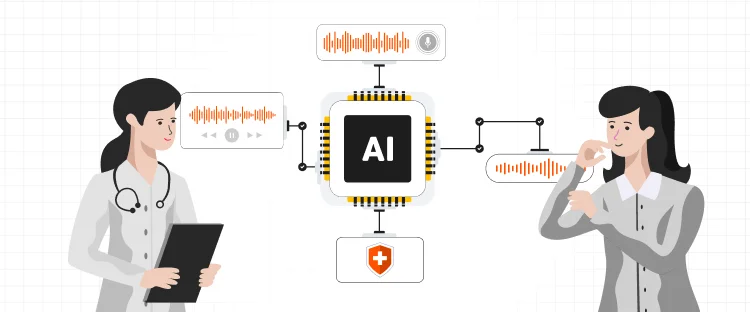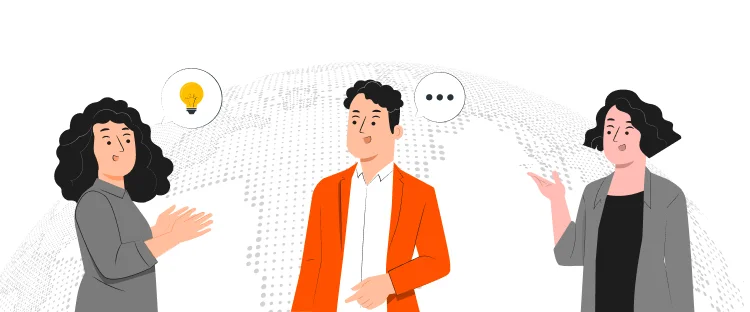By: Salman Saeed Posted on Tue, 26-09-2023

In these current times of pandemics and diseases, the need to get translated medical and pharmaceutical content has also increased. As more healthcare organizations invest in scientific research and trials, there is a dire need for professional translation solutions.
The scientific articles and related medical studies are the results of many hours of research. This is the reason why it is critically important to have the support of a communication specialist when translating these scientific articles. These specialists must be able to effectively convey the contents of the articles. In addition, the specialist organization must also meet the requirements of the institution or the journal where these scientific articles are to be published.
Here, CROs play a pivotal role in ensuring these specialist services are delivered to healthcare organizations, hospitals, and pharmaceutical companies. Let us take a look at what CROs are and what are some of the tips for translation for CROs.
CROs or Contract Research Organizations are service providers to medical device industries, pharmacies, and biotechnology companies. These CROs offer a range of services on a contract basis, and their international studies are vital for the pharmaceutical industry. Although these services are delivered professionally by CROs, the high level of regulation required by the governing bodies makes these services a complex task.
In addition to these tough regulations, there is also the challenge of reproducing studies in various languages while maintaining high accuracy and precision. This means that translation for CROs requires the attention and dedication of professional linguists. These dedicated linguists must have specialist knowledge of the medical and pharmaceutical industries. Moreover, the right translation for clinical trials can open doors for medical advancements that can save millions of lives across the world.
A number of CROs specialize in delivering services for clinical trials only. However, a critical function of a successful clinical trial involves the translation of medical documents accurately on a timely basis.
But why is there a need for translation for CROs in the first place? Let us find out.

The clinical trials delivered by CROs are mostly global in nature. But there are certain reasons why accurate translation for CROs is critical for the spread of these clinical trials:
The CRO industry has been witnessing growth over the past few years as outsourcing by pharmaceutical companies has gained momentum. This outsourcing takes place owing to the complexity of drug production and development. According to statistics, in 2011, CROs were used by almost 27% of large pharmaceutical companies and 47% of small companies. The rise of services acquired by CROs was such that 33 out of 38 drugs that were approved that year were tested by CROs. Moreover, these CROs are seen as a cost-effective way to outsource the messy process of conducting clinical trials.
The countries where clinical trials are conducted have their own guidelines, regulatory requirements, and approval processes. In order for these trial submissions to be accepted as well as approved globally, documents such as patient-informed consent forms, medical investigation brochures, and clinical summary reports may need to be translated into local languages. Take the example of a company that wishes to market its products in Europe. To be able to do that, the company may need to translate its content into more than 24 languages of the European Union. Since this is a difficult and large undertaking, CROs that are contracted by sponsors outsource these translations to translation service companies.
There is a high chance of mistakes in medical and healthcare translation owing to the tough nature of the medical terms. However, mistakes in clinical trials may have dire consequences for all the stakeholders involved. For example, an inaccurately translated description of symptoms can be misleading for trial participants and may result in legal and financial penalties, not to mention the loss of lives. Moreover, any ambiguity in the translation of procedures or methodology can destroy the validity of these trials. There are many possibilities of errors in translation and this puts extra pressure on translators who are working on medical content.
Owing to the above reasons, there is a critical need for professional translation services for CROs. Below are some tips that ensure these translation services for CROs are as accurate as possible.

The briefs for CRO translation projects are often not given much attention due to lack of time, which is why their importance in the translation process is often overlooked. A detailed brief is the first step to ensuring the translation project runs smoothly. Moreover, an understanding of the context for translation allows linguists to make the best decisions for the vocabulary and formatting of text.
It is quite important for a medical translator to understand which audience he is translating for. This is the reason why he needs to ask whether the document will be presented to the patient or the medical professionals. Asking this question is of profound importance as it will have an impact on whether a complex medical term is used or a layman’s term. Additionally, it is also helpful for a translator to understand what the document will be used for once they are finished with it.
Glossaries are essential for medical translators as they ensure a high level of accuracy and correctness. This accuracy is important in clinical studies as a technical term may be similar to another, but may have a crucial difference in application and meaning. The use of a glossary guarantees consistency through text, especially when multiple translators are handling the same translation project.
During the process of translating documents for clinical trials, a frequently used technique is back translation. This involves a series of steps. First, the text is translated into the target language. Next, this translation is reverted back to the original source language by an independent linguist who has not seen the original document. This back translation is then compared with the original text and may display the nuances in meanings as well as any discrepancies that need to be addressed. Owing to the need for this accuracy, back translation is often considered a part of the long process of linguistic validation.
Linguistic validation is a process that is used to ensure all the participants of the clinical study understand the same meaning as mentioned in the source document. This linguistic validation, therefore, is an important part of checking the validity of an instrument, such as a questionnaire for use in PROs. Ensure this content for translation is valid so that linguistic validation for clinical trials can be carried out smoothly without any errors.
One of the most important parts of the translation for CROs is proofreading for any errors. These errors can be quite minor, such as errors in spelling, grammar, or inconsistencies in formatting. In order to ensure that the text is clear and the style and tone of translation match the context, it is important to proofread everything accurately. Moreover, this proofreading task requires attention to detail as well as ample knowledge of the subject matter, along with necessary language skills.
The CROs are service organizations that deliver services to medical facilities, biotech companies, and pharmacies across the globe. These CROs must be given accurate translation services as they have to deal with the editing and dissemination of clinical information in clinical trials. Thanks to the professional translation services for CROs, this dissemination and spread of sensitive medical knowledge is possible. However, translation agencies must be careful when delivering services to CROs, as any minor error can have dire consequences for the whole medical community and the patients.

Colorado is said to be one of the best places to do business because the business environment is very friendly
Read More
The global marketplace has become an attractive place for brands and businesses, where they strive to create a presence of
Read More
CAD, or computer-aided design and drafting (CADD), is the use of computer technology for design and design documentation. CAD software
Read More
Many global companies, foreign governments and Iranian are hoping to see an increase in investment in Iran after declaring the
Read More
Artificial intelligence has taken a big space in almost every industry. There is also a widespread acceptance that AI is
Read More
Persuasion is all about manipulating other people behavior. At first it might sound immoral but it doesn’t have to be.
Read More
Now days everyone is searching for good ideas for their company they wanted to be more creative, they wanted to
Read More
Technology has now much diverse roots in this age of development. Now it is not wrong to say, that you
Read More
Localization is the practice of altering the functional properties of a product and also its characteristics. This is easily done
Read More


Document Translation
Professional document translation by native expertsApp Localization
Get more downloads by adapting your app for different target marketsVideo Translation
Multilingual translation and subtitling servicesWebsite Localization
Adapt your website into multiple contexts for global reachSoftware Localization
Adapt your software for global usersGame Localization
Reach new players with localized gameplayMTPE
Refine AI translations for natural fluencyBusiness Translation
Professional translation for business documents and websitesDTP & File Conversion
Professional DTP and File conversion, supporting multiple file formatsProofreading
Perfect your content with expert review© Copyright 2025 MarsTranslation